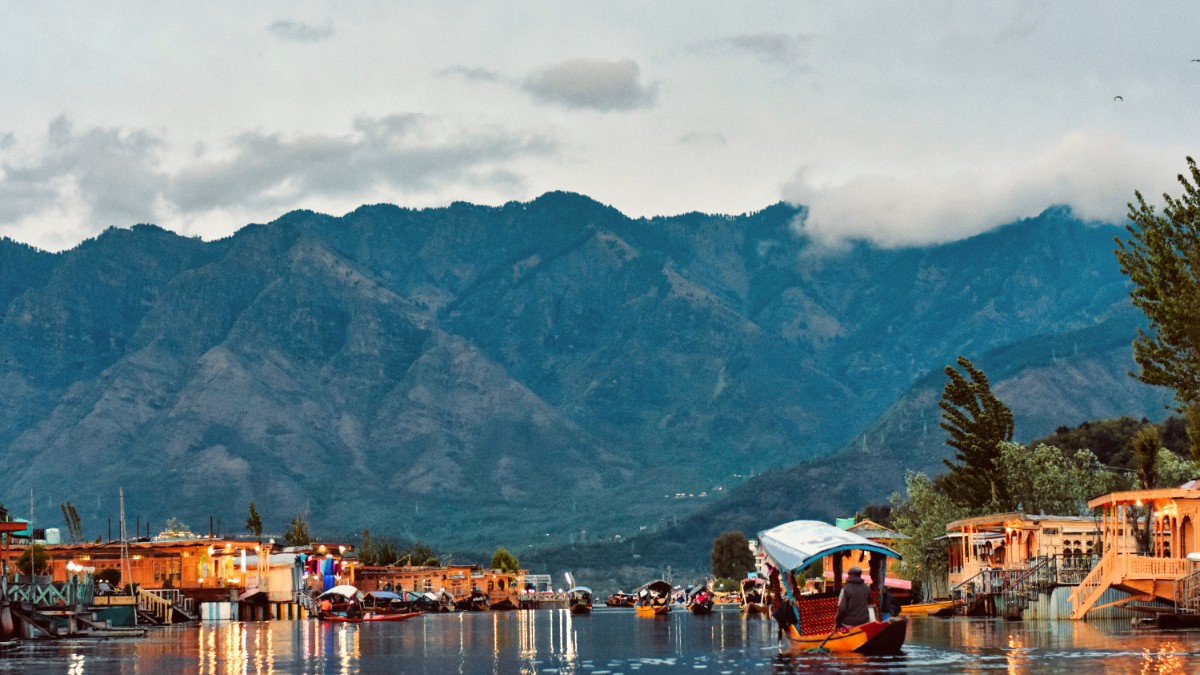
Jammu And Kashmir, India
Flavor depth comes from slow-cooking techniques and a thoughtful use of spices. The cuisine's history mirrors the various rulers and cultures that have passed through the valley, each leaving a culinary mark.
"Wazwan," a multi-course meal, is a centerpiece for special occasions like weddings and festivals. This elaborate feast can feature from 7 to 36 dishes, traditionally eaten communally from a large copper platter called a "trammi."
Guests typically sit on the floor around a large trammi. Eating with the right hand is customary. Washing hands before and after the meal is common practice.
In restaurants, standard dining etiquette applies. Avoiding food waste is highly valued.
Breakfast is usually light (tea, local bread). Lunch and dinner are the main meals. Restaurants serve lunch from noon and dinner into the late evening.
A fragrant lamb curry with a deep red color from Kashmiri chilies, slow-cooked for tenderness.
A flagship Kashmiri dish.
A mild, aromatic lamb or chicken curry with a yogurt base. Spices like cardamom, ginger, and fennel offer a subtle flavor.
Creamy and delicate.
Minced meatballs, pounded until smooth, cooked in a rich, white yogurt-based gravy. These are tender and soft.
The finishing dish of a Wazwan.
A traditional green tea infused with saffron, cardamom, cinnamon, and slivered almonds.
Phirni is a creamy rice pudding. Shufta, a dessert of dry fruits and paneer sweetened with syrup.
Explore restaurants within luxury hotels like Vivanta Dal View or The Lalit Grand Palace Srinagar.
Many options exist around Boulevard Road and the city center for quality meals.
Lal Chowk and surrounding areas host numerous small eateries and street food stalls.
Polo View market or the Floating Market on Dal Lake (early morning) offer fresh produce and spices.
These markets give a chance to see and sample local food items.
Limited international cuisine in Srinagar. Larger hotels might offer Chinese or Continental dishes.
The focus remains mainly on local Indian cuisine, so manage expectations for international flavors.
Many delicious vegetarian dishes are in Kashmiri Pandit cuisine. Vegan choices may need specific requests due to dairy use.
Most meat is Halal. Kosher food is generally not present in Srinagar.
Awareness limited outside high-end hotels. Carry translated allergy cards. Rice is naturally gluten-free.
Direct communication with restaurant staff or houseboat hosts is the best approach. Explain needs clearly.
Arrange to partake in a traditional Kashmiri Wazwan meal. This is not just a meal; it is a cultural event.
Many houseboats or specialized restaurants offer this multi-course feast.
An opportunity to savor a wide array of authentic Kashmiri dishes.
A core experience for understanding local food culture.
This dining setting creates a peaceful and private atmosphere for your meal.
Many houseboats feature home-cooked Kashmiri meals prepared by your host.
This vegetarian variation often uses different spices, creating flavors without onions or garlic.
A unique pink-colored salted tea, distinct to Kashmir, made with special tea leaves and milk.
A traditional dessert with mixed dry fruits, paneer cubes, and spices, sweetened with sugar syrup or honey.
A Wazwan meal can take a significant amount of time, plan accordingly.
It's an experience, not just a meal.
Local residents can offer the best recommendations for authentic eateries.
Discover hidden culinary gems.
This traditional Kashmiri tea, infused with saffron and spices, is served everywhere and offers a true taste of local hospitality.
Pair your Kahwa with a Bakarkhani or Sheermal for a delightful local snack experience.
Depending on the season, fresh local fruits, especially apples, can be found in abundance and make for refreshing treats.
Engaging with the local food culture can create memorable experiences.